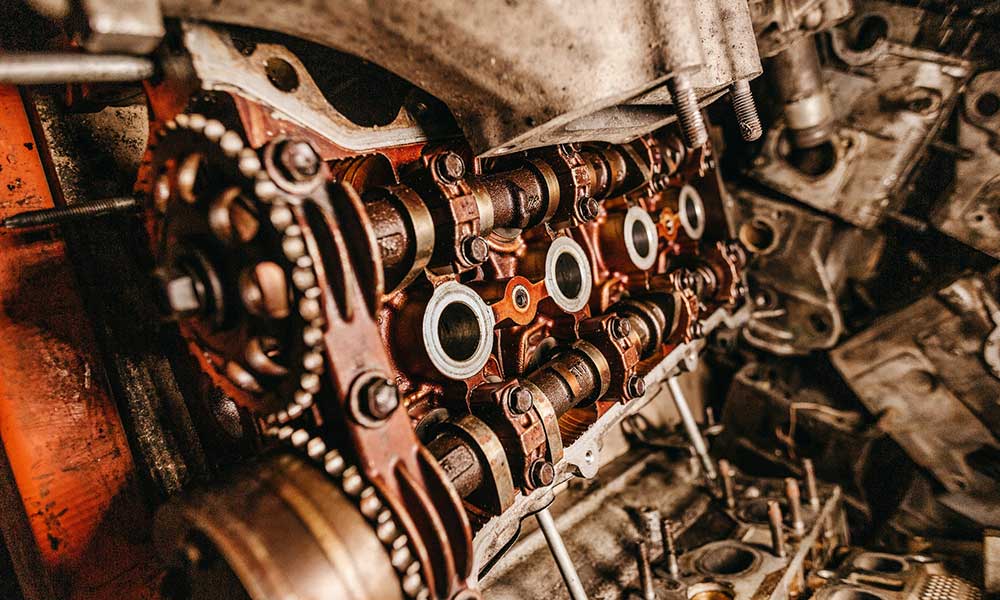If you’re a newcomer to the Golden State, welcome! As a new resident of California, you’ll need to register your out-of-state vehicle with the California Department of Motor Vehicles (CA DMV). We’ll cover everything you need to know to register your out-of-state vehicle in California properly.
Registering Your Out-of-State Vehicle As A New Resident of California
As a new resident of California, you must register your out-of-state vehicle. The information below applies to vehicles purchased outside of California by a California resident and brought to California to be registered.
New California residents must register their vehicle(s) within 20 days of establishing residency in the state. It’s best to find your local CA DMV branch and schedule an appointment to register your vehicle.
The CA DMV considers you a resident of California if any of the following applies:
- Employed in California
- Claim tax exemptions for a home in CA
- Rent or lease a home or apartment
- Apply for state documents (such as driver’s license, voter registration, etc.)
- Enroll you or your dependents in any school (college, grade school, high school, etc.)
Remember that these rules do NOT apply to military members or their families who are residents of a different state.
Once you establish residency in CA, visit your local CA DMV branch and submit the following:
- A completed Application for a Car Title and Car Registration (Form REG 343) with the signatures of all owners and information for any lienholders, if applicable.
- Commercial vehicles must have a Declaration of Gross Vehicle Weight or Combined Gross Vehicle Weight (Form REG 4008).
- Trailers must be registered via the Permanent Trailer Identification (PTI) Application Certification (Form REG 4017).
- Proof of vehicle insurance
- Out-of-state title (if you are transferring your title to California) – This title is only required if you are also applying for a CA title simultaneously. However, the registration will be non-transferable if you do NOT get a CA title.
- Out-of-state-registration (you can also use a registration renewal or letter proving registration from the DMV in the last state where it was registered)
- Weight certification (if required)
- Smog and emissions certification
- Payment for all taxes and fees
A CA DMV staff member will perform a physical inspection of the vehicle and a vehicle identification number (VIN) verification. You will receive a California registration certificate, including your vehicle’s license plates and registration stickers.
California Registration Fees
The California DMV has different fees that are required when registering an out-of-state vehicle and depend on various factors. If you purchase a car from a dealership, these fees will show as part of the total price of the vehicle. You are required to pay the fees directly to the California DMV if you purchase your car in a private sale (from another person).
All vehicle owners are required to pay the following:
- Registration fee: $65
- California Highway Patrol (CHP) fee: $29
- Transportation Improvement Fee (TIF) – based on the vehicle’s value:
- $0 to $4,999: $28
- $5,000 to $24,999: $56
- $25,000 to $34,999: $112
- $35,000 to $59,999: $168
- $60,000 or more: $196
Late Vehicle Registration Fees
Your out-of-state vehicle must be registered within 20 days of establishing residency in California, or you will be subject to late fees, which are determined by the duration of the delinquency.
You have a maximum of 10 days to register a vehicle in CA after you purchase it from a private party be in or out-of-state, or you will be required to pay late fees.
California Vehicle Registration Penalties
The following are the vehicle registration penalties in California:
- Less than 1 year: $30
- 1 to 2 years: $50
- More than 2 years: $100
California Highway Patrol Fee Penalties
The following are the California Highway Patrol fee penalties for an original registration:
- Less than 1 year: $30
- 1 to 2 years: $50
- More than 2 years: $100
All other required fees will vary depending on your type of vehicle. If you’re looking for a more exact estimate of the Vehicle License Fees (VLFs), you can visit the CA state site to use their California VLF calculator for a general idea of what you will be expected to pay.
Keep in mind that all fines, violations, and debts to the California DMV need to be paid in full BEFORE you will be eligible to register a vehicle.
California Smog Checks & Inspections
Almost all California vehicles are required to pass a smog inspection before being registered. California has specific areas that require a smog certification every 2 years.
New cars no more than 8 years old and located in these areas will be charged a $25 smog abatement fee every 1 year for the first 8 years of CA registration instead of getting a smog inspection.
The ONLY vehicles that are exempt from a CA smog inspection are the following:
- New cars that are less than 4 years old
- Hybrid and electric vehicles
- Gas vehicles that are a model year 1975 and older
- Diesel vehicles that are a model year 1997 and older
- Diesel vehicles that weigh at least 14,000 lbs.
- Natural gas vehicles that weigh at least 14,000 lbs.
- Motorcycles
- Trailers
California Weight Certifications
Weight certificates are required to register certain pickups and trucks in California. You can obtain this certificate from a public scale or moving company that has a vehicle scale. There will be a fee to have your truck weighed, which varies by location and based on the weight of the vehicle.
Trucks that require weight certification are commercial vehicles with an operating weight of no more than 6,000 lbs. You are required to fill out a Statement of Facts (REG 256) that estimates the weight of the vehicle.
Trucks that are exempt from the weight certification requirements include the following:
- Trucks or pickups that have previously been registered in CA and the prior CA registration reveals the weight (the truck cannot have been altered or modified in any way that would change the printed weight on the CA registration card).
- Trucks or pickups that weigh no more than 6,000 lbs. when empty
- Trucks with 2 or 3 axles that weigh at least 10,001 lbs. or more
California License Plates
California vehicles must have license plates with a current registration sticker to show that they are valid. License plates will stay on the car when purchased and sold unless they are specifically requested to be kept by the seller.
Different special interest license plates are available in California, including collegiate, military, and social cause license plates. You can complete a Special Interest License Plate Application to receive the special license plate you would like.
Changing a Non-Transferable Registration to a Valid Transferable Registration
Non-transferable registrations in California are given to out-of-state vehicles registered in CA but don’t have proof of ownership, such as the vehicle’s title.
Cars with a non-transferable registration can’t be sold, transferred, or given a CA vehicle title. If you want to buy or sell a vehicle with a non-transferable registration, it must be converted to a transferable registration.
You must convert your non-transferable CA registration to a transferable registration by submitting it to your local CA DMV branch:
- Your current non-transferable registration card
- The vehicle’s last-issued title (if you don’t have the car’s title, you are required to provide a completed Application for a Duplicate or Paperless Car Title (Form REG 227) if your vehicle was initially titled in CA or contact the CA DMV.
- A completed Application for Car Title or Car Registration (Form REG 343) and bill of sale if you are purchasing and registering a car from a previous owner
- An accurate odometer disclosure statement for vehicles that are less than 20 years old
- Proof of a smog certification (showing you passed the smog check) (if required)
- Payment for all required renewal fees (if the car’s registration is due for renewal within 30 days)
- Payment for all applicable transfer fees or outstanding citations
Exceptional Cases for California Vehicle Registration
There are specific instances that apply when registering your out-of-state vehicle in California. If your car is no longer in the CA DMV records for at least 4 years, it may not appear in these records. You will have to visit your local CA DMV branch for further instructions.
If you have a loved one who passed away and want to transfer ownership of their vehicle, renew the vehicle’s registration, or return the license plates or placards, you must visit your local CA DMV branch or call the DMV branch to determine your next steps.
The California “CHEATERS” Program
As you’re traveling through the state of California, you may see a lot of out-of-state license plates on different cars. The California Highway Patrol (CHP) asks California residents to report if they frequently see the exact vehicle displaying an out-of-state plate. Most likely, this individual is another CA resident who has unlawfully registered their car or is currently registered in a different country or state.
Did you know unlawfully registered vehicles cost the state of California millions each year? Although the CHP and other law enforcement agencies try to reinforce the 20-day registration requirement, enforcement is only one of their many public service responsibilities.
The CHP developed a program called “CHEATERS” (Californians Help Eliminate All of the Evasive Registration Scofflaws.
This program encourages all Californians to assist their state and local law enforcement in decreasing the amount of illegal out-of-state registrations. With this program, reporting these cases is simple. Drivers need to complete an online form and provide the following:
- State or province of the license plate in question (if it is a Mexican plate, they must have the driver’s physical address)
- License plate number
- Make, model, and color of the vehicle
- The date and time the vehicle was observed
- Location where it was observed (including the city and street)
- Additional information, such as details to help identify the car (for example, bumper stickers, decals, and other identifying objects)
The CHP warns CA participants not to confront the driver or write out a report. Be advised that not all CA residents with out-of-state plates intentionally avoid registering their vehicles with the DMV. Some residents may be unaware of California’s regulations, and some individuals may fall under the state’s exceptions for members of the military who claim residency in a different state.
Renewing Your Vehicle Registration in California
You have different options when it’s time to renew your CA vehicle registration. Choose the option that’s best for you.
Online
You can renew your vehicle registration online, provided that you do NOT have any unpaid traffic tickets or delinquency fees. If so, this information will be posted on your renewal notice. To renew your CA vehicle registration online, you will need the following information:
- Your valid CA license plate number
- The last 5 digits of the VIN (vehicle identification number)
- Proof of a valid auto insurance on file with the CA DMV
- Proof of a passed smog check (smog certification) on file with the CA DMV
- Payment to cover the renewal fee (a credit, debit, ATM card, or checking account number is required)
By Mail
To renew your CA vehicle registration by mail, you will need to provide the following:
- Your registration renewal form (if your address is different, print your new address on the form)
- Proof you have a valid auto insurance policy (if required)
- Evidence of a passed smog inspection (if required)
- Proof of payment for outstanding fees (if applicable)
- Check or money order to pay for your renewal fee (must be made payable to the DMV
Mail the required documents and payment to the following address:
Vehicle Registration Operations
Department of Motor Vehicles
P.O. Box 942869
Sacramento, CA 94269
By Phone
You can also renew your CA vehicle registration via phone, given that:
- You currently have your vehicle registration renewal notice
- Your registration renewal notice shows your current address
- You have no unpaid delinquency or tickets
If the above is true, call the CA DMV at (800) 777-0133. You must have your Renewal ID Number (RIN) printed on your renewal notice. You may also need to provide the following information:
- Your vehicle identification number (VIN) – this should be listed on your renewal notice
- Proof of a valid car insurance policy on file with the CA DMV
- Your license plate number
- A credit or debit card to pay the renewal fee
In Person
If you want to renew your CA vehicle registration in person, or your notice directs you to, you need to visit your local CA DMV branch with your renewal notice or your current registration certificate. You will also need your CA driver’s license. If applicable, a court clearance document that shows that any delinquent fees have been paid will also be required. Make sure you have the necessary payment to cover your renewal fees in the form of cash, check, money order, or debit/ATM card.
You are required to renew your CA vehicle registration in person if you owe any delinquency fees or have unpaid traffic tickets. If you have yet to receive your renewal documents, you can check your registration status by contacting the CA DMV.
California Car Registration Renewal Notice
The CA DMV will mail your renewal notice in advance of your registration’s expiration date. The notice will include the following information:
- The date of your tag’s expiration
- Renewal fees
- Vehicle information
- Emissions requirement
- Delinquency fees (you are required to pay all delinquency or ticket fees that appear on your renewal notice before you will be eligible to renew your registration)
You will only be allowed to renew your CA registration by mail or in person if you owe any extra fees.
What Do I Do If I Didn’t Receive My California Registration Renewal Notice?
If you haven’t receive a renewal notice in the mail, contact your local CA DMV branch or call (800) 777-0133. To avoid missed renewal notices and possible fines and penalties, make sure you update your new address with the CA DMV.
Remember that even if you did not receive a renewal notice, you must still renew your registration on time.
Conclusion
Don’t get caught with out-of-state plates! Registering your out-of-state car doesn’t have to be a task that takes forever to complete. We’ve given you everything you need to register your out-of-state vehicle within California’s given time frame to avoid penalties and fines. Follow these steps, and you’ll have a California-registered vehicle!
As a new resident of California, don’t forget to obtain your new CA driver’s license and contact your previous license and title agency to determine what you should do with your old license plates.
FAQs
You’ve got questions, and we’ve got answers. Here are the answers to common questions to help you register your car in California when you move from another state.
What is a Non-Resident Vehicle?
A non-resident vehicle is one that was last registered in a different state or country.
Can I Register My Non-Resident Vehicle in California?
Some non-resident vehicles can’t be registered in CA or the US. Unless the car was originally manufactured to meet California’s emissions standards or the vehicle owner qualifies for an exemption, CA law prohibits CA residents or businesses from bringing the vehicle to California, registering the car in California, or motor vehicle that is less than 2 years old and has fewer than 7,500 miles on the odometer at the time of its purchase, trade, or acquisition.
How Do I Change Ownership?
The previously issued out-of-state car title must be signed for release by the vehicle’s seller(s) and the legal owner(s), if any. The legal owner of the vehicle can also release interest on a notarized Lien Satisfaction/Legal Owner/Title Holder Release (Form REG 166).
For cars that are less than 10 model years old, you will need a Vehicle/Vessel Transfer and Reassignment (Form REG 262). You can obtain this form from your CA DMV. This form must be completed in ink. You will also need a CA Bill of Sale (Form REG 135) if the individual from whom you are acquiring the vehicle is NOT the registered vehicle owner shown on the out-of-state car title.
How Do I Know What Fees Are Due?
The fees that you owe depend on different factors. You can use the California Vehicle Registration Fee Calculator to give you a general idea of the fees you will be required to pay. However, the exact amount of the fees you owe can only be determined when you submit your registration application to the CA DMV.
CA DMV Locations
Since you’re a new resident of CA, you’ll complete your out-of-state registration process with your local CA DMV branch. There are tons of California DMV locations. We’ve listed a handful of these locations to help you stay on track with your CA registration process.
CA DMV – San Francisco Branch
1377 Fell St.
San Francisco, CA 94117
(800) 777-0133
Monday – Friday (8 AM to 5 PM)
Saturday and Sunday (Closed)
CA DMV – Riverside Office
6280 Brockton Ave
Riverside, CA 92506
(800) 777-0133
Call for office hours
CA DMV – San Bernardino Office
1310 N Waterman Ave
San Bernardino, CA 92404
(800) 777-0133
Monday, Tuesday, Thursday, and Friday (8 AM to 5 PM)
Wednesday (9 AM to 5 PM)
Saturday and Sunday (Closed)









